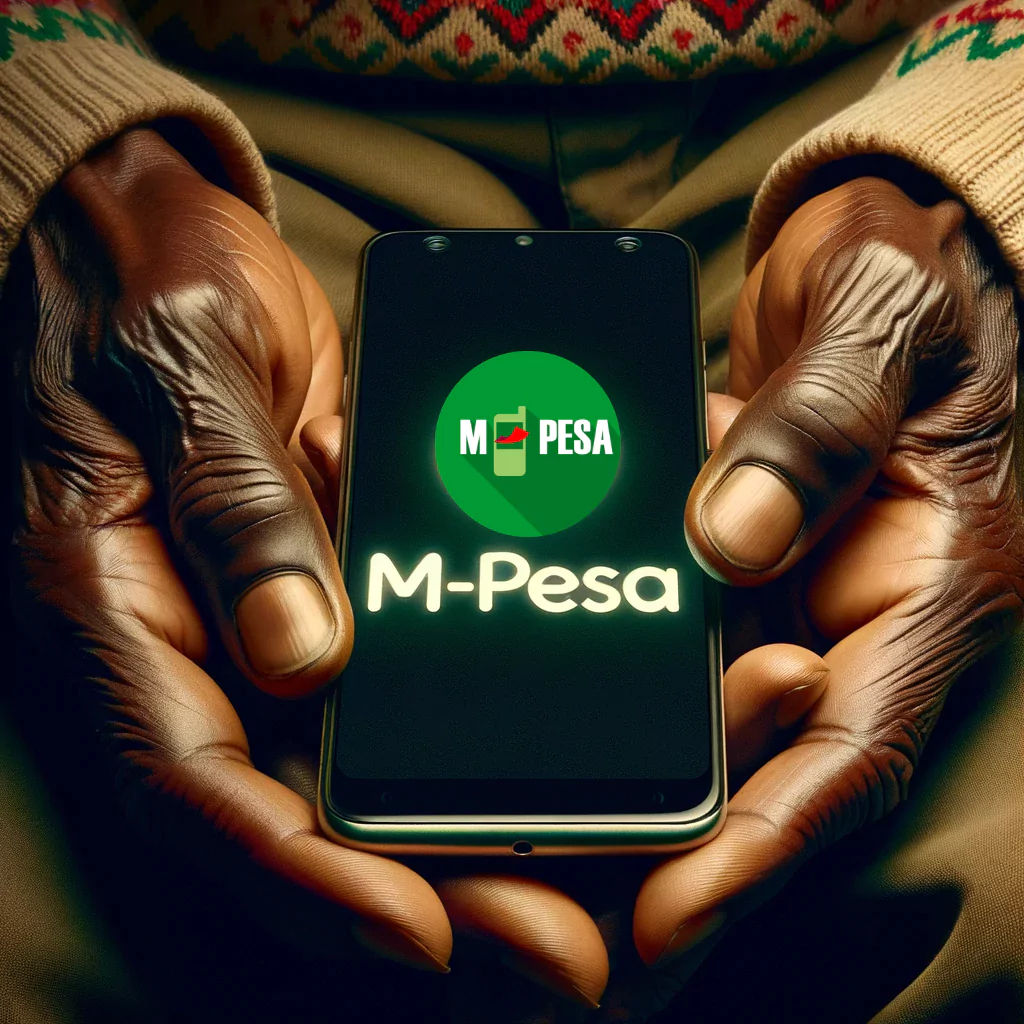In the bustling heart of Africa, Kenya stands as a testament to the transformative power of digital technology. The significance of digital marketing in Kenya for businesses cannot be overstated as entrepreneurs leverage online tools to scale their ventures.
This guide delves into diverse facets of digital marketing, tailor-made for the Kenyan market, offering insights and strategies for local businesses to thrive.
1: Digital Marketing in Kenya: Understanding the Market
Kenya stands out as one of the leading African nations making significant strides in the digital space. The country’s digital landscape is characterized by impressive internet penetration and a tech-savvy population that has readily embraced online platforms for communication, commerce, and information dissemination.
Overview of Internet Penetration

With over 43 million internet users, representing approximately 82% of the population, Kenya presents a fertile ground for digital marketers. This high rate of connectivity is attributed to several factors:
- Accessibility and Affordability: The proliferation of affordable smartphones and competitive data packages has made internet access easier for a majority of Kenyans.
- Government Initiatives: The Kenyan government has invested in ICT infrastructure, ensuring that both urban and rural areas have decent internet connectivity.
- Youthful Demographic: A significant portion of the population is young and tech-savvy, readily adopting digital trends and technologies.
Mobile Marketing and M-Pesa’s Role in Kenya’s Digital Space
Mobile marketing has emerged as a central component of the digital marketing strategy in Kenya, and here’s why:
- Mobile Money Services: Services like M-Pesa have revolutionized transactions in Kenya, providing a convenient and accessible means of payment even for individuals without traditional bank accounts. M-Pesa has over 25 million users, creating a significant impact on consumer spending habits.
- SMS Marketing: Given the widespread use of mobile phones, SMS marketing remains an effective way to reach audiences with personalized messages and promotions.
- Mobile Apps and Social Media: The popularity of social media platforms accessed via mobile apps offers a unique avenue for marketers to engage with their audiences directly.
Adaptation to Mobile Commerce
The prominence of M-Pesa and other mobile money platforms has made mobile commerce a norm. From small-scale traders to large retail outlets, businesses have incorporated mobile payment options, simplifying transactions and expanding their reach.
2: Kenyan Digital Marketing Trends
Digital marketing in Kenya is an ever-evolving field, dynamically influenced by a blend of global innovations and local peculiarities. Both international trends and homegrown approaches contribute to shaping a unique digital marketing landscape. Social media and influencer marketing, in particular, have made substantial inroads, offering marketers diverse and impactful avenues for audience engagement.
Current and Emerging Trends
Kenya’s digital marketing space is vibrant and constantly adapting to the latest trends. Some of the prevailing and emerging trends include:
- Video Marketing: Video content has become a powerful medium for storytelling and engagement. Platforms like YouTube, Instagram, and Facebook have seen a surge in video consumption. Kenyan businesses are leveraging this trend by creating visually appealing content, from product demonstrations to behind-the-scenes glimpses.
- Chatbots and Artificial Intelligence: Automated customer service through chatbots is gaining traction. Kenyan businesses are integrating AI-driven chatbots on websites and social media to provide instant responses to customer inquiries, thereby enhancing user experience and streamlining customer service.
- User-Generated Content: Encouraging users to create and share content related to a brand or product has proven to be an effective marketing strategy. It fosters community building and provides authentic and relatable content for audiences.
- Mobile Marketing: Given the prevalence of mobile devices, mobile marketing strategies such as SMS promotions and app-based marketing are highly effective in reaching a wide audience.
- E-Commerce and Online Marketplaces: The convenience of online shopping has led to a surge in e-commerce activities. Platforms like Jumia, Kilimall, and local social media selling groups have grown exponentially.
- Influencer Marketing: Collaborating with influencers has become a staple in digital marketing strategies. Kenyan influencers, with their wide reach and impact, play a pivotal role in brand promotion.
- Data-Driven Marketing: Utilizing data analytics to understand consumer behavior and tailor marketing strategies is a trend that is steadily picking up among Kenyan businesses.
- Sustainability and Ethical Marketing: Consumers are becoming more conscious of sustainability and ethics. Brands that align themselves with causes and showcase ethical practices are likely to garner positive consumer responses.
Impact of Social Media and Influencer Marketing in Kenya
Social media platforms like Facebook, Instagram, Twitter, and LinkedIn are immensely popular in Kenya, and businesses leverage these platforms for direct interaction with their audiences. Influencer marketing has evolved as a natural extension of social media marketing. Brands collaborate with influencers who share authentic stories and experiences, thereby creating a personal connection with the audience and fostering trust.
3: Best Practices for Successful Digital Marketing in Kenya

Navigating the digital landscape of Kenya requires an understanding of not just global digital marketing practices, but also the unique aspects of the Kenyan market. In this vibrant East African nation, tailoring strategies to align with local tastes, preferences, and cultural subtleties is absolutely crucial.
So, what are the best practices that can make a digital marketing campaign in Kenya successful?
Localized Content is King:
- Understanding the Audience: Crafting content that speaks directly to the Kenyan audience involves understanding the local culture, language, and sentiments. For instance, Swahili phrases or local slang can often strike a chord.
- Cultural Relevance: Whether it’s a social media post or a blog article, ensure that your content celebrates and respects local holidays, traditions, and events. This builds a sense of community and engagement.
Leveraging Mobile Accessibility:
- Mobile-First Approach: With a significant number of Kenyans accessing the internet via mobile devices, optimizing content for mobile is a must. Simple, responsive designs enhance user experience.
- SMS Marketing: Utilizing SMS marketing taps into the widespread use of mobile money services like M-Pesa. Quick updates, offers, or alerts via text can be effective.
Interactive and Engaging Visual Content:
- Using Visuals: Kenyans love vibrant and visually appealing content. Integrating images, videos, and infographics that are locally relevant can increase engagement.
- Storytelling through Videos: Storytelling, especially through videos, can evoke emotions and drive connections. Local success stories or testimonials can be impactful.
User-Generated Content and Reviews:
- Encouraging Reviews: Positive reviews from local customers can significantly boost credibility. Encourage satisfied customers to share their experiences.
- Engaging the Community: Create campaigns encouraging users to generate content. This could be in the form of contests, challenges, or featured stories.
Social Media Mastery:
- Platform Selection: While Facebook and Instagram are popular, platforms like Twitter and LinkedIn also have a strong presence in Kenya. Choosing the right platform based on your target audience is key.
- Consistent Engagement: Regular updates, quick responses, and engaging posts build a consistent brand image.
Data-Driven Decision Making:
- Analytics and Feedback: Using data analytics tools to understand what resonates with your audience helps in refining strategies. Listening to user feedback and adapting is crucial.
SEO and Local Search Optimization:
- Local SEO: Ensuring your business appears in local searches, Google Maps, and local directories can significantly enhance visibility among Kenyan users.
- Keyword Optimization: Using keywords that are relevant to the Kenyan market can optimize search engine rankings.
Ethical and Transparent Practices:
- Transparency: Being open and transparent about your services and products builds trust.
- Ethical Marketing: Ensuring that your marketing strategies are ethical and respectful to local norms is crucial.
In essence, the effectiveness of digital marketing in Kenya hinges on striking the perfect balance between global best practices and local customization. By aligning your strategy to the Kenyan digital pulse, your marketing efforts can resonate more deeply and yield fruitful results.
4: Digital Advertising Platforms Shaping Digital Marketing in Kenya

Navigating the digital marketing sphere in Kenya means tapping into the right advertising platforms that can connect brands with their target audience effectively.
Both global platforms such as Facebook, Google Ads, Instagram, LinkedIn, Twitter, and TikTok, as well as localized forums, are instrumental in this quest.
Let’s explore these platforms and their benefits in detail.
Global Platforms:
- Facebook:
- Wide Reach: Facebook’s popularity among Kenyans offers a broad audience.
- Targeted Advertising: Facebook Ads can target specific demographics, enhancing the relevance of content.
- Community Building: Facebook Groups can be used to build communities around similar interests or brands.
- Google Ads:
- Search Engine Visibility: Google Ads ensures that businesses appear prominently in search results.
- Pay-Per-Click (PPC) Model: The PPC model is cost-effective as businesses pay only when users click on their ads.
- Local SEO: Google My Business enhances local visibility.
- Instagram:
- Visual Engagement: Instagram’s visual interface appeals to younger demographics.
- Influencer Partnerships: Collaborations with Kenyan influencers can elevate brand awareness.
- Instagram Shopping: Businesses can facilitate shopping directly from posts.
- LinkedIn:
- Professional Networking: LinkedIn is suitable for B2B marketing and professional engagements.
- Thought Leadership: Sharing industry insights can position a brand as a thought leader.
- Twitter:
- Real-Time Engagement: Twitter allows businesses to engage with audiences in real-time, enhancing brand communication.
- Trend Participation: Engaging in trending hashtags can increase visibility and brand relevance.
- Customer Feedback: The platform is often used for customer service and gathering feedback.
- TikTok:
- Creative Content: TikTok’s short-form video content appeals to a young, dynamic audience.
- Viral Potential: Content on TikTok has the potential to go viral quickly, offering brands immense exposure.
- Influencer Collaborations: Partnering with TikTok influencers can offer authentic connections with audiences.
Localized Platforms:
- Online Forums and Classified Websites:
- Platforms like OLX Kenya and KenyanList: These provide a space to connect with local customers seeking specific products or services.
- Community Engagement: Participating in industry-related discussions on forums can build trust and authority.
- Kenyan Blogging and News Sites:
- Sponsored Content: Collaborations with popular Kenyan blogs for sponsored content can widen reach.
- Guest Posts: Guest posts on relevant topics can drive traffic back to your site.
- SMS and Mobile Marketing Platforms:
- Bulk SMS Services: SMS services can reach users without regular internet access.
- Mobile Money Platforms: Advertising on platforms like M-Pesa reaches a wide user base.
- Kenyan Influencers and YouTube Channels:
- Local Influencers: Collaborations with influencers with a strong Kenyan following can foster authentic connections.
- YouTube Channels: Advertising on popular Kenyan YouTube channels ensures that video content reaches a targeted audience.
Leveraging both global and localized advertising platforms allows businesses to create a well-rounded digital marketing strategy that resonates with the Kenyan audience, establishing meaningful connections and driving results.
5: SEO: A Pillar of Digital Marketing in Kenya

For Kenyan businesses, Search Engine Optimization (SEO) serves as a cornerstone in their digital marketing toolkit, striving to amplify their online presence and attract natural traffic. By customizing SEO approaches to align with the distinct needs and inclinations of the Kenyan audience, businesses can significantly boost their online impact.
Here are some practical tips for optimizing websites to effectively resonate with Kenyan audiences:
I. Local SEO Optimization:
- Google My Business: Ensuring your business is listed and verified on Google My Business is crucial. This enhances local search visibility and provides potential customers with essential information such as location, contact details, and reviews.
- Local Keywords: Incorporating location-specific keywords, such as “Nairobi” or “Mombasa,” in your content can help attract local searches.
II. Keyword Research and Optimization:
- Relevance: Identify keywords that are relevant to your business and have substantial search volume in Kenya. Tools like Google Keyword Planner or Ahrefs can assist in this research.
- Long-Tail Keywords: Use long-tail keywords that are specific to your products or services, increasing the chances of ranking higher in search results.
III. Content Quality and Relevance:
- Cultural Resonance: Develop content that resonates with the Kenyan audience’s culture, values, and interests.
- Informative and Engaging: Content should be valuable, informative, and engaging, establishing your brand as a credible source of information.
- Regular Updates: Frequently updating your site with fresh, relevant content can significantly impact SEO rankings positively.
IV. Mobile Optimization:
- Responsive Design: Given the high prevalence of mobile internet usage in Kenya, ensure your website is mobile-friendly with a responsive design.
- Page Load Speed: Optimize images and scripts to ensure fast loading speeds, especially for mobile users.
V. On-Page and Off-Page SEO:
- Meta Descriptions and Title Tags: Optimize meta descriptions and title tags with relevant keywords to enhance search engine visibility.
- Backlinks: Establish a solid backlink profile by earning links from reputable Kenyan websites and forums.
- Internal Linking: Effective internal linking can improve navigation and boost page authority within your site.
VI. Social Media Integration:
- Social Signals: Leverage social media platforms popular in Kenya to drive traffic to your website, as search engines often consider social signals in their algorithms.
- Shareable Content: Create content that encourages social sharing, amplifying reach and possibly improving rankings.
VII. User Experience (UX) and Technical SEO:
- Site Architecture: Ensure a clean and straightforward site architecture that enhances user experience.
- Secure and Accessible Website: Implement HTTPS for a secure user experience, and ensure that your website is accessible to search engines.
VIII. Analytics and Monitoring:
- Track Performance: Use tools like Google Analytics to regularly monitor and assess your website’s performance and tweak strategies accordingly.
- Feedback and Adaptation: Pay attention to user feedback and metrics to continually refine your SEO strategies.
By implementing these SEO strategies tailored to the Kenyan market, businesses can effectively enhance their online visibility, attract a relevant audience, and ensure a competitive edge in the digital landscape.
6: Leveraging Social Media for Digital Marketing in Kenya

Social media has emerged as a powerful force in Kenya, providing businesses with an indispensable tool to connect, engage, and communicate with their target audience. The active participation of Kenyan audiences on various social platforms such as Facebook, Twitter, and Instagram offers an array of opportunities for businesses to tailor their marketing strategies. Let’s delve into the dynamics of social media marketing in Kenya:
I. Understanding the Platforms:
- Facebook: With its vast user base, Facebook remains a dominant platform for businesses to engage with audiences through posts, advertisements, and Facebook Groups.
- Twitter: Kenyans actively use Twitter for real-time updates and discussions, making it an ideal platform for timely and topical marketing campaigns.
- Instagram: The visually-centric nature of Instagram resonates with younger demographics, making it an ideal space for brands with visual appeal.
- LinkedIn: Professionals and businesses network and share industry insights on LinkedIn, making it a strategic platform for B2B marketing.
- WhatsApp: The popularity of WhatsApp for personal communication translates into opportunities for businesses to create direct and personalized marketing campaigns.
II. Strategizing Content:
- Culturally Relevant Content: Crafting messages that resonate with Kenyan culture and societal norms ensures better engagement.
- Visual Storytelling: Using images, videos, and infographics to tell a story can lead to higher engagement and shareability.
- Interactive Content: Polls, quizzes, and user-generated content can foster interaction and enhance brand visibility.
III. Influencer Marketing:
- Local Influencers: Collaborating with local influencers can provide a genuine and relatable voice to marketing campaigns.
- Micro-Influencers: Micro-influencers, with their niche and engaged following, can often offer more personalized and trusted recommendations.
IV. Engagement and Community Building:
- Timely Engagement: Promptly responding to comments, messages, and mentions builds a positive brand image.
- Community Groups: Creating or participating in community groups related to your industry can establish your brand as an authority.
V. Data-Driven Decision Making:
- Analytics: Leveraging social media analytics to understand audience behavior, preferences, and engagement patterns.
- A/B Testing: Regularly testing different content types, posting times, and engagement strategies to optimize results.
VI. Adaptation to Trends:
- Staying Updated: Keeping up with social media trends and algorithm changes ensures your strategy remains relevant and effective.
- Campaign Flexibility: Being able to adapt and modify campaigns based on real-time feedback and trends.
VII. Ethics and Compliance:
- Privacy and Data Protection: Ensuring that marketing practices comply with privacy laws and respecting user data.
- Authenticity: Maintaining transparency and authenticity in advertising and promotions.
By recognizing the power of social media marketing and strategically tapping into the preferences of the Kenyan audience, businesses can create impactful and resonating campaigns that not only build brand awareness but also drive conversions and foster community engagement.
7: Mobile Marketing in Kenya

In Kenya and the entire world, mobile phones have transcended their traditional role of communication and have become instrumental in facilitating digital marketing efforts. With widespread access to mobile devices and a growing preference for mobile transactions, businesses are capitalizing on mobile marketing to connect with their audience effectively.
Let’s explore the various aspects of mobile marketing in Kenya and how they can be beneficial to your business:
I. SMS Marketing:
- Reach and Accessibility: SMS marketing is a potent tool given its wide reach, ensuring messages are delivered directly to a user’s handset, regardless of internet connectivity.
- Personalization: Tailoring messages to cater to the preferences and needs of the audience can enhance engagement and response rates.
- Timely Alerts and Offers: SMS is effective for sending time-sensitive alerts, promotions, and offers, ensuring immediate visibility.
II. Mobile Commerce (M-Commerce):
- M-Pesa and Mobile Wallets: The popularity of mobile money services like M-Pesa has revolutionized transactions, making payments convenient and accessible.
- E-Commerce Apps: The surge in mobile commerce platforms, such as Jumia, Kilimall, and Sky.Garden, has simplified online shopping experiences, encouraging more users to make purchases through mobile applications. For instance, Jumia, often referred to as the ‘Amazon of Africa,’ offers a wide range of products and facilitates easy mobile transactions, while Kilimall provides localized shopping experiences catering specifically to the Kenyan market.
III. Mobile Applications and Advertising:
- App-Based Marketing: Businesses can engage users through their own applications or by advertising on popular third-party apps. For example, local food delivery services like Jumia Food and Glovo have leveraged their own apps to promote special offers and new restaurant partnerships.
- In-App Advertising: Strategically placed ads within applications can generate interest and drive conversions. For instance, mobile games or lifestyle apps often display advertisements from various brands, including local Kenyan companies, enticing users to explore products or services.
- Geo-Targeting: Mobile allows businesses to target audiences based on location, delivering contextual and relevant content. A local retailer in Nairobi, for example, could use geo-targeting to send promotional notifications to potential customers in proximity to their store, offering timely deals and discounts.
IV. Social Media on Mobile:
- Mobile-Optimized Content: Given the high consumption of social media on mobile devices, content needs to be optimized for smaller screens. For instance, brands like Safaricom often create visually appealing, concise posts on platforms like Instagram and Facebook that are easily consumable on mobile devices.
- Interactive Campaigns: Utilizing mobile features for interactive social media campaigns can lead to higher user engagement. For example, businesses may launch Instagram Stories polls or quizzes, such as the ones used by Nairobi-based fashion brands like Vivo Activewear and Wazawazi to involve their audience in choosing upcoming styles or product features.
V. Mobile-First SEO and Websites:
- Responsive Design: Another aspect to consider is ensuring websites are mobile-friendly and responsive to different screen sizes is crucial for user experience and SEO.
- Loading Speed: In addition, optimizing mobile websites for faster loading times contributes to improved user experience and search rankings.
VI. Mobile Content Marketing:
- Video Content: Short, engaging video content aligns well with mobile consumption patterns, catering to users who prefer quick and easily digestible information. For instance, businesses can create brief video tutorials, product demonstrations, or customer testimonials. Kenyan companies might produce vibrant, storytelling videos that showcase the culture and spirit of the nation while subtly marketing their products. Platforms like TikTok and Instagram Reels, known for their brevity, have gained popularity in Kenya and can be leveraged for such content.
- Infographics and Visuals: Mobile-optimized visual content, such as infographics and visually appealing images, can succinctly convey messages and attract attention. This is especially beneficial for users who skim through content on their mobile devices. Kenyan businesses, for instance, could create infographics outlining the benefits of their products or the steps involved in utilizing their services. By combining eye-catching visuals with concise text, companies can effectively communicate complex information in an easily accessible format.
VII. User Experience and Convenience:
- Ease of Navigation: Mobile interfaces should prioritize simplicity and ease of navigation.
- Clear Call-to-Action: Ensuring that call-to-action (CTA) buttons are prominent and accessible can lead to better conversion rates. For instance, an e-commerce site in Kenya selling electronics could use CTAs like “Buy Now” or “Add to Cart” prominently displayed next to product descriptions. Similarly, a Kenyan travel agency’s website might have a vibrant “Book Your Safari Now” button that stands out on the page, guiding users seamlessly through the booking process. By making these CTAs clear and easy to find, businesses can effectively guide users to take the desired actions.
VIII. Analytics and Feedback:
- User Behavior Analysis: Tracking user behavior on mobile platforms can provide insights for campaign optimization. For example, a Kenyan online grocery store could use analytics to observe which products users most frequently browse or add to their carts. By analyzing this data, the store could then tailor promotions or adjust its app layout to highlight popular items, such as offering special discounts on frequently browsed products.
- Feedback Mechanisms: Mobile platforms should facilitate easy feedback mechanisms for continuous improvement. For instance, Kenyan ride-sharing apps like Bolt and Uber prompt users to rate their experience and provide comments after each ride. Similarly, a food delivery service in Nairobi might include an option for users to give feedback on both the meal and the delivery process. By incorporating these feedback mechanisms, businesses can gather valuable insights and make necessary adjustments to enhance user satisfaction.
IX. Legal and Ethical Considerations:
- Data Privacy: Ensuring adherence to data protection and privacy regulations is paramount. For example, businesses in Kenya need to be compliant with the Data Protection Act, which governs the processing of personal data. This could involve implementing secure data storage solutions and being transparent with users on how their data is being used.
- Consent: Respecting user consent for receiving promotional messages is crucial for ethical mobile marketing. In practice, this means that a Kenyan e-commerce site should only send SMS promotions or app notifications to users who have explicitly opted in to receive such communications. By doing so, businesses not only comply with legal standards but also build trust with their customers.
By harnessing the ubiquity of mobile phones and integrating innovative marketing strategies, businesses can create a direct and personalized connection with their audience in Kenya. Mobile marketing thus stands as a pivotal and indispensable component of a comprehensive digital marketing strategy in the Kenyan landscape.
8: Content Marketing Strategies for Kenyan Businesses
In the dynamic digital landscape of Kenya, content marketing has risen to prominence as an essential strategy for businesses seeking to establish a strong online presence. Several content marketing strategies, including blogging, video content, and infographics, have become indispensable for effectively communicating with target audiences.
Here is how these various strategies can help your business;
I. Blogging:
Blogging offers Kenyan businesses an opportunity to provide valuable information, tell their brand story, and engage with their audience. For instance, companies like Safaricom consistently update their blogs with articles on technology, product updates, and community initiatives. By doing so, they position themselves as thought leaders in their industry while also boosting their search engine visibility.
II. Video Content:
With the increasing prevalence of high-speed internet and mobile device usage in Kenya, video content has become a powerful medium for engagement. Short, relatable, and visually appealing videos can quickly capture the audience’s attention. Kenyan brands leverage platforms like YouTube, Facebook, and Instagram to share product demonstrations, customer testimonials, and behind-the-scenes glimpses into their operations.
III. Infographics and Visuals:
Infographics serve as an effective tool for condensing complex data into easily digestible and visually appealing content. Kenyan businesses use infographics to convey statistics, processes, and other information succinctly. For example, a Kenyan health organization might create an infographic to educate the public on preventive healthcare measures.
IV. Social Media Content:
The widespread use of social media platforms like Facebook, Twitter, and Instagram in Kenya necessitates a strong social media content strategy. Businesses use these platforms to share timely updates, run promotional campaigns, and engage with their audience through interactive content such as polls, quizzes, and live sessions.
V. User-Generated Content (UGC):
Encouraging customers to create and share content related to a brand can be a powerful endorsement and marketing tool. Kenyan businesses might run social media contests or campaigns asking users to share photos of themselves using a product, thereby creating a sense of community and authenticity around the brand.
VI. Educational Content:
Providing educational content, such as tutorials, guides, and webinars, positions a business as an authority in its field. For example, a Kenyan fintech company could create a series of educational videos explaining how to use mobile banking securely.
VII. SEO-Optimized Content:
Ensuring that content is optimized for search engines is crucial for increasing visibility. Kenyan businesses can benefit from using local keywords, creating high-quality content, and obtaining backlinks from reputable sites.
VIII. Email Marketing:
Regular newsletters and personalized email campaigns can help Kenyan businesses keep their customers informed about new products, offers, and company news. By combining engaging content with targeted email marketing, businesses can maintain a consistent and personalized dialogue with their audience.
Effective content marketing strategies enable Kenyan businesses to connect with their audience, build brand awareness, and drive conversions. By creating relatable, engaging, and valuable content, businesses can ensure they remain at the forefront of their consumers’ minds and foster lasting relationships.
9: Influencer Marketing: Amplifying Digital Marketing in Kenya
Influencer marketing in Kenya has seen a significant surge, with successful campaigns spanning various sectors and reaching diverse audiences. Businesses have recognized the potential of leveraging influencers to create authentic connections and foster brand awareness.
- In Fashion and Lifestyle: Kenyan fashion influencers, such as Joy Kendi and Silvia Njoki, have collaborated with local and international brands to showcase their products. These influencers use their platforms to promote clothing lines, beauty products, and lifestyle brands, effectively reaching their followers who look up to them for style inspiration.
- In Technology and Telecommunications: Companies like Safaricom have utilized tech influencers to introduce new gadgets or promote their services. Influencers might give their followers a sneak peek into a new smartphone or demonstrate the benefits of a mobile money service, thereby giving these products a relatable and authentic endorsement.
- In Food and Beverage: Influencers like Kaluhi Adagala leverage their platforms to share culinary experiences and collaborate with restaurants and food brands. Such collaborations may involve creating recipes using specific products or reviewing dining experiences at various establishments.
- In Travel and Tourism: Kenyan travel influencers like Susan Wong and Mutua Matheka work with tourism boards and travel agencies to promote local destinations. Through their visually appealing content and storytelling, they inspire their followers to explore the beauty within Kenya.
- In Health and Fitness: Fitness influencers in Kenya, such as Frankie Just Gym It, engage in partnerships with health brands and gyms, promoting healthy lifestyles and wellness products.
Evaluation of Success:
Measuring the impact of influencer marketing involves analyzing engagement rates, conversion rates, and the overall brand visibility achieved through campaigns. For instance, a spike in sales after an influencer promotes a product can be a direct indicator of a campaign’s success.
Strategic Alignments:
For influencer marketing to be successful, brands need to ensure that there’s a strategic alignment between the influencer’s audience and the brand’s target demographic. For example, a brand selling skincare products would find more success partnering with a beauty influencer than a tech influencer.
Influencer marketing in Kenya presents a dynamic and impactful avenue for brands to connect with their target audience in a manner that’s both personal and persuasive.
By selecting influencers whose followers align with their target demographic and ensuring authentic engagements, brands can harness the full potential of this marketing strategy.
10: Email Marketing Success Stories in Kenya

Email marketing has played a pivotal role in driving customer engagement, brand loyalty, and conversion rates in Kenya. By strategically crafting email campaigns, several Kenyan businesses have managed to captivate their audience and yield impressive results.
For example,
- E-commerce Platforms: Jumia, one of Africa’s biggest online shopping platforms, has successfully used email marketing to alert customers about ongoing sales, promotions, and new product arrivals. Their tailored emails often include personalized recommendations, which can significantly enhance click-through rates and conversions.
- Banks and Financial Institutions: Banks such as Equity Bank and Safaricom’s M-Pesa service utilize email marketing to update customers on new financial products, account statements, and financial literacy content. These institutions often employ segmented lists to ensure that the information is relevant to the recipient, thus boosting engagement.
- Travel Agencies: Kenyan travel agencies like Bonfire Adventures leverage email marketing to showcase holiday packages, special offers, and travel tips. By using visually appealing images and compelling call-to-actions, these emails entice potential travelers to explore new destinations.
- Education Institutions: Universities and colleges in Kenya, such as the University of Nairobi, have embraced email marketing to keep students and potential enrollees informed about admission processes, upcoming events, and course offerings.
- Non-Profit Organizations: NGOs and charity organizations in Kenya use email marketing to reach donors and volunteers. For instance, an organization like AMREF Health Africa may send out newsletters detailing their recent initiatives, success stories, and calls for donations.
- Retail and Grocery Stores: Supermarket chains like Carrefour Kenya have successfully implemented email marketing to inform customers about ongoing promotions, loyalty programs, and discounts on specific products.
Best Practices:
For email marketing to be successful in Kenya, businesses must ensure:
- Personalization: Tailoring the content to suit the recipient’s preferences and past interactions with the brand.
- Mobile Optimization: Considering the high mobile usage in Kenya, emails should be optimized for viewing on mobile devices.
- Strategic Timing: Sending emails at times when they are most likely to be opened, such as during lunch breaks or in the evening.
- Engaging Content: Crafting content that is informative, concise, and compelling, coupled with clear calls-to-action.
Impact Assessment:
The success of email marketing campaigns can be measured through metrics such as open rates, click-through rates, and conversion rates. For example, a high conversion rate after an email campaign can be indicative of its effectiveness.
Email marketing in Kenya is not just a tool for communication but also a powerful mechanism for building brand loyalty, increasing customer engagement, and driving sales when executed correctly.
11: AI and its Transformative Role In Kenya’s Digital Marketing

In recent years, Artificial Intelligence (AI) has emerged as a powerful force that is gradually transforming the contours of the digital marketing landscape globally. Kenya, being an agile adopter of technology, has been quick to embrace these advancements. Marketers are leveraging AI to inject innovation into campaigns, optimize operations, and curate personalized user experiences. Let’s delve deeper into the nuances of some of these trends:
I. AI-powered Personalization:
Personalization in marketing is not new, but AI has taken it to another level by enabling businesses to offer tailored experiences at scale.
- Example: Kenyan e-commerce platforms might use AI algorithms to analyze users’ browsing history, past purchases, and demographic data. By doing this, they can recommend products that are more likely to resonate with each user individually.
- Impact: This form of targeted marketing not only enriches the user experience but also fosters customer loyalty and engagement, thereby improving conversion rates.
II. Automated Social Media Management:
AI tools are assisting marketers in effectively managing social media presence by automating tasks such as post scheduling, responses, and brand mention tracking.
- Example: Kenyan businesses may utilize tools like Hootsuite or Buffer to schedule posts across different time zones, ensuring they reach their audience when they are most active.
- Impact: Automating social media management enables brands to maintain a consistent presence, streamline workflows, and reallocate human resources to more strategic tasks.
III. Voice Search Optimization:
The advent of voice assistants like Google Assistant and Siri has made voice search optimization a priority.
- Example: Local businesses in Kenya may optimize their websites and content for conversational queries like “nearest coffee shop” to capture voice search traffic.
- Impact: By focusing on natural language and user intent, businesses can tap into a segment that prefers hands-free, immediate search results.
IV. Generative AI:
Generative AI models can create content and identify consumer patterns, aiding in marketing strategies.
- Example: ChatGPT could be used by Kenyan businesses to draft customer responses or create SEO-friendly content.
- Impact: This technology saves time, aids in personalization, and ensures that content is tailored to a diverse audience.
V. AI-driven Content Curation:
AI is being used to curate content based on user preferences and behavior, ensuring relevancy in marketing communications.
- Example: Kenyan news websites might use AI to analyze reader behavior and subsequently curate news feeds to match individual preferences.
- Impact: Such automation leads to higher user engagement and satisfaction.
AI Marketing Tools:
There are many AI marketing tools available in the world today that can help businesses improve their marketing strategies but here are some that have found their way into the Kenyan digital marketing space:
- ChatGPT: Known for crafting conversational dialogues and content.
- Jasper: Helps in creating quality content seamlessly.
- MarketMuse: Analyzes and suggests content strategies.
- Albert.ai: Manages and optimizes digital advertising accounts.
- Crayon Competitive Intelligence Software: Keeps track of competitors’ activities.
- Lavender: Assists in composing effective emails quickly.
- Smartly.io: A platform for managing social media advertising campaigns.
- Adzooma: Automates and optimizes online advertising campaigns.
- DALL-E: Capable of converting textual prompts into images.
- Descript: A tool for editing videos and podcasts.
- Adobe Photoshop: Provides AI-powered design tools for intricate edits.
Incorporating AI technologies like personalized marketing, automated social media management, voice search optimization, generative AI, and AI-driven content curation into a digital marketing strategy is no longer a futuristic concept but a present-day necessity. Businesses in Kenya that harness these technologies are better positioned to navigate the dynamic digital market and foster meaningful connections with their customers.
12: Affiliate Marketing: A Growing Segment of Digital Marketing in Kenya
In Kenya, the affiliate marketing landscape is expanding, presenting numerous opportunities for businesses and individuals alike to tap into this revenue-generating strategy. The dynamics of the digital space and consumer behaviors align well with affiliate marketing models.
I. Understanding Affiliate Marketing in Kenya:
- Definition: Affiliate marketing involves partnering with businesses to promote their products or services and earning a commission for every sale, click, or lead generated through one’s marketing efforts.
- Key Components: The model typically involves three key players: the advertiser (brand), the affiliate (publisher or marketer), and the consumer.
II. Growth Drivers:
- Internet Penetration: With a growing number of Kenyans having access to the Internet, affiliates can reach a wide audience online.
- E-commerce Boom: The increase in online shopping platforms and digital payment systems, such as M-Pesa, has made online transactions convenient and commonplace.
III. Popular Niches:
- Retail and E-Commerce: Affiliates can partner with online retailers like Jumia and Kilimall to promote a wide range of products.
- Financial Services: Banks and microfinance institutions offer affiliate programs for promoting loans, credit cards, and other financial products.
- Travel and Hospitality: Affiliates can earn commissions by promoting hotels, travel packages, and airline bookings.
- Education and Online Courses: Platforms offering online courses and educational materials provide opportunities for affiliate marketing.
IV. How to Get Started:
- Choosing a Niche: Affiliates should select a niche that aligns with their interests and expertise to create authentic and compelling promotions.
- Partnership Programs: Many Kenyan companies and international platforms offer affiliate programs. For example, Jumia has an affiliate program that allows partners to earn commissions on sales generated through their links.
- Creating Content: Affiliates can leverage blogs, social media, YouTube, and other platforms to create content that integrates affiliate links.
V. Success Stories:
- Bloggers and Influencers: Several Kenyan bloggers and influencers have successfully monetized their platforms through affiliate marketing, providing reviews, and sharing links to products and services.
VI. Challenges and Considerations:
- Trust and Credibility: Affiliates must ensure that they promote trustworthy and credible products to maintain their audience’s trust.
- Regulatory Compliance: Ensuring that affiliate marketing practices comply with regulations and ethical standards is crucial.
The potential for affiliate marketing in Kenya is vast and continues to grow with technological advancements and changing consumer behaviors. By strategically tapping into this opportunity, businesses and individuals can explore new avenues for revenue generation while contributing to the digital economy.
13: Online Advertising Regulations in Kenya

One important thing to note before you embark on your digital marketing campaign is that you should ensure it is compliant with the advertising regulations. In Kenya, the digital marketing space is governed by a set of legal regulations and ethical guidelines designed to protect both consumers and businesses. Adherence to these regulations is not only a legal requirement but also serves to foster trust and credibility among the target audience.
They include;
I. Consumer Protection:
- Accuracy and Honesty: The Consumer Protection Act stipulates that all advertising should be honest, transparent, and not misleading. For instance, exaggerated claims or hidden costs in product promotions could lead to legal repercussions.
- Privacy and Data Protection: The Data Protection Act emphasizes respecting user privacy and safeguarding personal information collected online. This includes ensuring that data is collected with consent and is stored securely.
II. Advertising Standards:
- Kenya’s Advertising Standards Body: This body sets guidelines on acceptable advertising practices. These guidelines cover a range of aspects, from decency to truthfulness in advertising.
- Content Regulation: Content promoting alcohol, tobacco, or explicit material must adhere to strict guidelines, ensuring that they are not accessible to underage audiences.
III. Intellectual Property Rights:
- Copyright Laws: Digital content, including text, images, videos, and music, is protected by copyright laws. Unauthorized use can lead to legal action.
- Trademark Infringements: Businesses should ensure that their advertisements do not infringe on the trademarks of other entities.
IV. E-Commerce Regulations:
- Electronic Transactions: The Kenya Information and Communications Act oversees electronic transactions, ensuring that online contracts and communications are legally binding and secure.
- Consumer Rights: E-commerce platforms must uphold consumer rights, including providing clear information on products, honoring warranties, and facilitating returns or refunds as per the guidelines.
V. Social Media and Influencer Marketing:
- Transparency and Disclosures: Influencers and social media marketers are expected to clearly disclose any paid partnerships or affiliations in their promotions. For example, using hashtags like #Ad or #Sponsored is a common practice.
- Misleading Endorsements: Any claims made by influencers or advertisers must be substantiated and should not mislead the audience.
VI. Ethical Considerations:
- Cultural Sensitivity: Content should be respectful and sensitive to Kenya’s diverse cultural and societal norms.
- Children and Vulnerable Groups: Marketing efforts should take into account the vulnerability of certain groups, ensuring content is appropriate and not exploitative.
Staying compliant with online advertising regulations and ethical considerations in Kenya is not just a legal obligation but also a practice that can build brand trust and credibility.
By being aware of and respecting these guidelines, businesses can foster a respectful and trustworthy relationship with their audience while avoiding legal pitfalls.
In Conclusion
In the dynamic landscape of Digital Marketing in Kenya, businesses are rapidly evolving to embrace innovation, creativity, and data-driven strategies. From leveraging social media platforms and email marketing to harnessing the power of AI, the opportunities are boundless. It is imperative for businesses to stay ahead of the curve and adapt to these changing tides.
At Pointman Marketing, we understand the unique aspects of the Kenyan digital market and specialize in crafting tailored marketing strategies that resonate with your audience. Our expertise ensures your brand not only navigates this digital revolution but leads it.
Don’t let your business be left behind. Take a decisive step towards success and let Pointman Marketing be your guiding star in the digital realm.
Contact us today and let’s embark on a journey to elevate your brand to unprecedented heights.

0 Comments